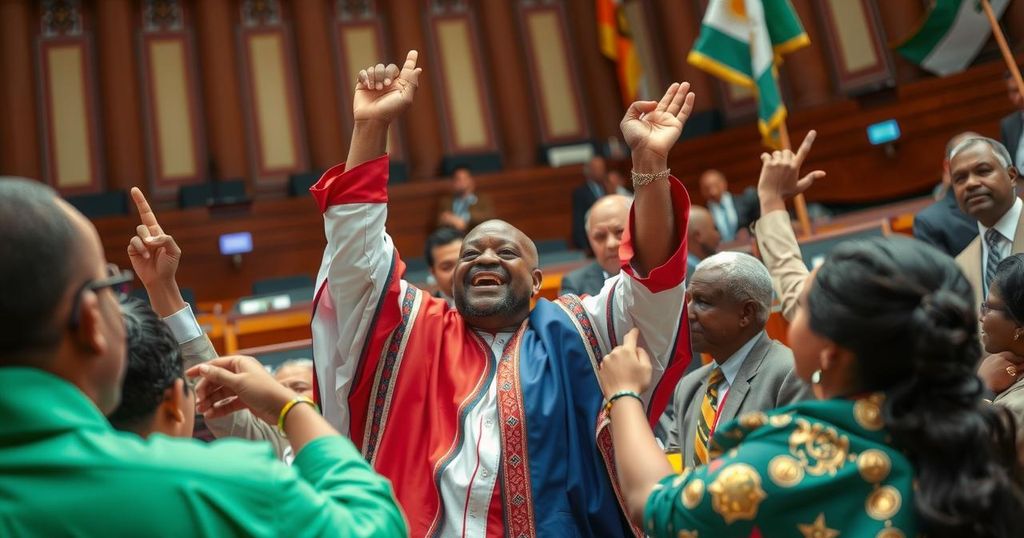Chad’s Ruling Party Secures Majority in Boycotted Legislative Elections
Chad’s ruling Patriotic Salvation Movement won a decisive majority in the December parliamentary elections, securing 124 out of 188 seats amid a boycott by major opposition parties. Voter turnout was reported at 51.5 percent. This election marked the first parliamentary vote in over a decade and represents an essential stage in Chad’s transition towards democracy under President Mahamat Idriss Déby, following a military takeover in 2021.
Chad’s ruling Patriotic Salvation Movement (PSM) has successfully secured a commanding majority in the parliamentary elections held in December, as indicated by provisional results released recently. Despite the boycott of these elections by the principal opposition parties, the PSM achieved 124 out of 188 seats, reflecting a significant consolidation of President Mahamat Idriss Déby’s political power. Voter turnout for this election, which was the first in over a decade, reached 51.5 percent, indicating notable public engagement despite the opposition’s absence.
This parliamentary election was a critical part of Chad’s ongoing transition to democracy following the military ascendancy of Mahamat Idriss Déby in 2021. This takeover was precipitated by the death of his father, long-standing president Idriss Déby Itno, who had governed Chad with an iron fist since 1991. Amidst a backdrop of security struggles, including attacks from Boko Haram in the Lake Chad area and challenges regarding military relations with France, Déby emphasized the election’s importance in heralding an era of decentralization and empowerment for provincial governments.
The electoral process, however, faced substantial criticism from over ten boycotting opposition factions, including the influential Transformers party, led by Succès Masra, who was the runner-up in the prior presidential election. The opposition denounced the elections as a mere spectacle, raising concerns that they could mirror the contested presidential polls, which were deemed lacking in credibility by observers. As the PSM firmly establishes its dominance, the main opposition has yet to issue a statement regarding the election results, leaving their position unclear in this evolving political landscape.
Chad has undergone significant political transitions, particularly following the death of Idriss Déby Itno. His successor, Mahamat Idriss Déby, initially took power through a military coup in 2021. The recent parliamentary election was not only the first in more than ten years but also marked the culmination of efforts towards a more democratic governance structure in Chad, amidst various socio-political challenges. The ruling party’s victory raises questions about the opposition’s influence and the legitimacy of electoral processes in the nation, especially following allegations of electoral impropriety in both recent and past elections.
The outcomes of the parliamentary elections in Chad, where the ruling PSM achieved a significant majority amid a boycott by opposition parties, indicate a consolidation of President Mahamat Idriss Déby’s power. The elections represent a critical juncture in Chad’s shift towards a more decentralized government. However, the absence of opposition voices raises concerns regarding the electoral legitimacy and the future of democracy in Chad, particularly during a time of widespread social and security challenges.
Original Source: www.rfi.fr




Post Comment